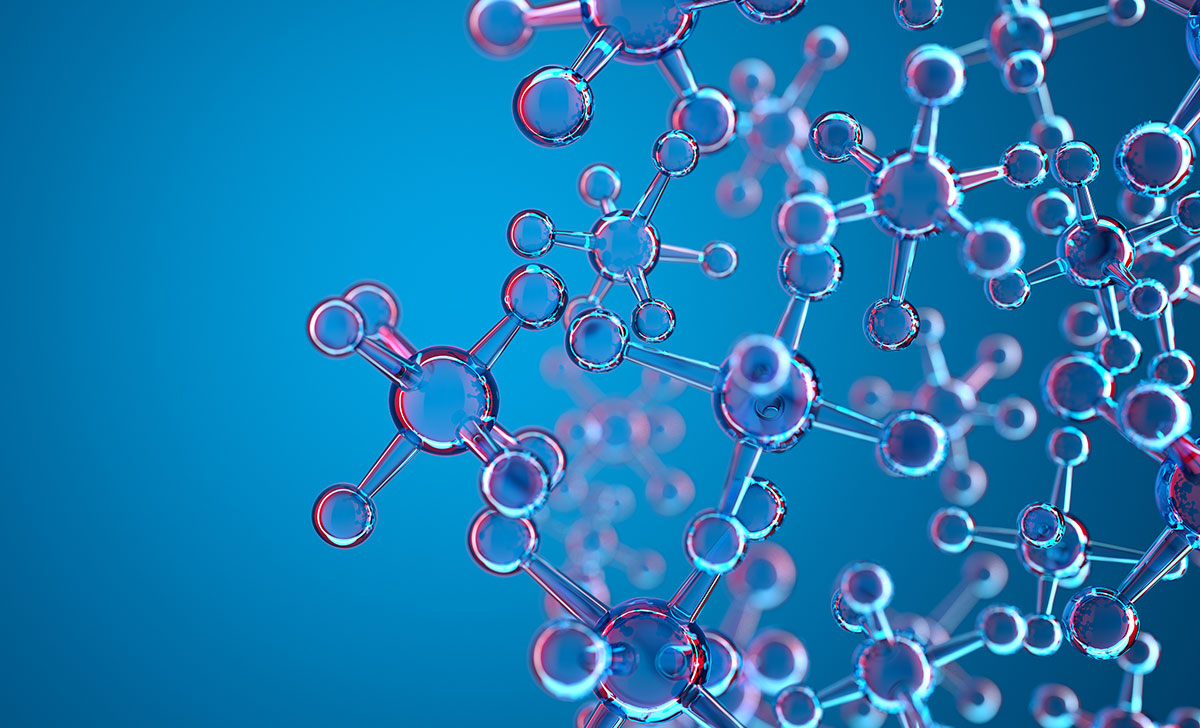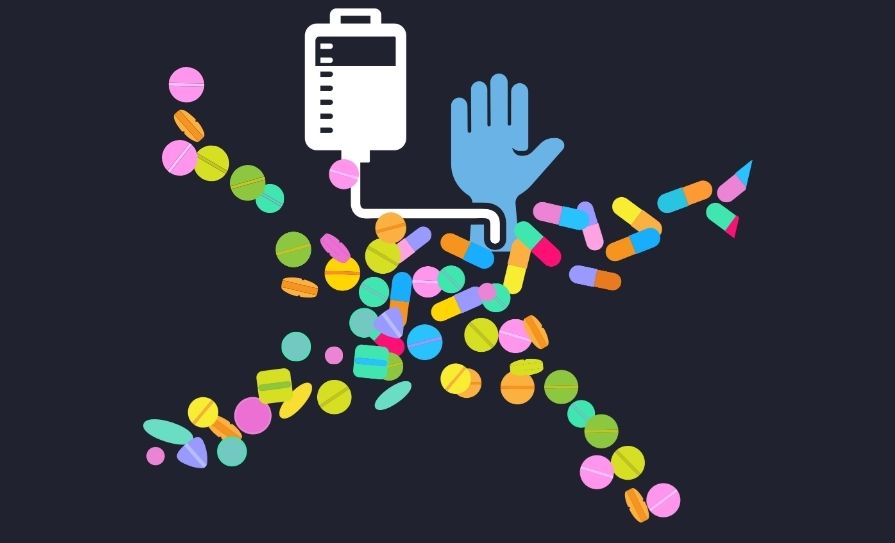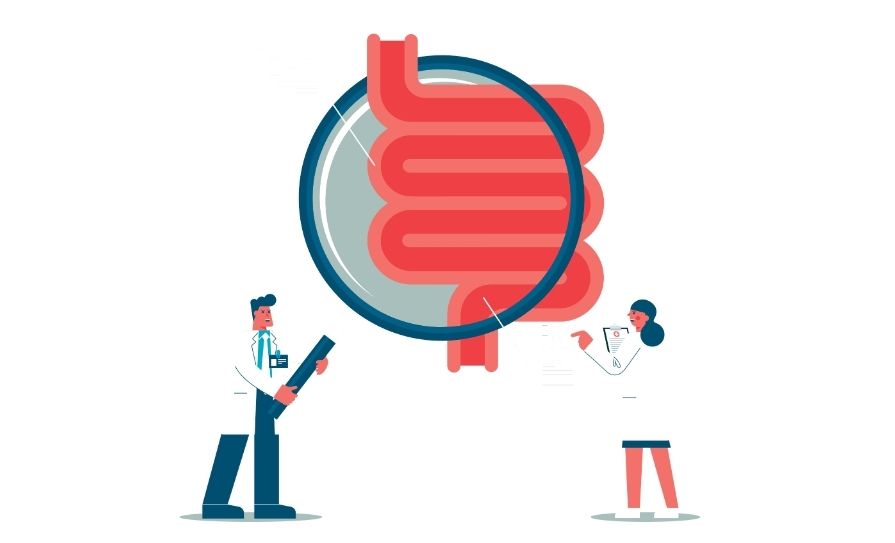Donna Cosgrove Mpsi Provides A Clinical Synopsis Of Ginkgo Biloba, Which Shows Evidence Of Efficacy In A Number Of Areas.
Ginkgo biloba (‘maidenhair’) is a tree native to China. It is one of the oldest living tree species, sometimes called a living fossil, having existed for 240 million years.1 Ginkgo trees are widely cultivated and their seeds (‘ginkgo nuts’) are used as a food and traditional medicine, especially in Asian countries.2 Fresh ginkgo biloba seeds and leaves in raw form are poisonous and are considered unsafe. Supplements contain ginkgo biloba dry leaf extracts (GLEs) in capsule or tablet form.
GLEs conforming to international pharmacopoeial monographs are usually made by extraction of the dried leaves with acetone/water 60% (w/w) following subsequent purification steps to remove the unwanted or harmful compounds. About 1g of extract can be made from 50g of dried ginkgo leaves. EGb 761 is a standardised GBE that has the toxic ginkgolic acids removed, leaving behind the active components of flavonoid glycosides (22.0-to-27.0%) and terpene lactones (5.0-to-7.0%), believed to be the active components in ginkgo. Terpene lactones in EGb 761 consist of ginkgolides A, B and C, and bilobalide. Most published research on the effects of ginkgo biloba use this standardised extract.3 Safe adult doses are between 120 and 240mg a day, with a maximum daily dose of 600mg.
Ginkgo has been shown to have (Figure 1) antioxidative, anti-inflammatory and neuroprotective properties,5 and to increase blood flow through vasodilation and reducing blood viscosity. Flavone glycosides, specifically found in ginkgo, have demonstrated higher antimicrobial and more powerful antioxidant qualities when compared to other antioxidants (ie, quercetin).1 The terpenoids reduce inflammation and improve circulation by increasing both the permeability and dilation of blood vessels and reducing the ‘stickiness’ of platelets (through platelet activating factor antagonism). It takes up to four-to-six weeks for symptomatic improvement.
Analysis of RCTs involving adults with, ie, dementia, peripheral artery disease, or diabetes mellitus show positive effects of ginkgo on blood perfusion through a significant reduction in blood viscosity. The antagonistic action of ginkgolide B on platelet activating factor (PAF) may play a role in neuroprotection. PAF concentration increases in the setting of trauma and hypoxia, and regulation of PAF may slow apoptosis and enhance recovery. Both terpene lactones and flavonoid glycosides contribute to its vasodilatory potential.
Free radicals are generated in the body when our mitochondria generate energy.4 Circulating free radicals lead to oxidative stress, damaging cells.5 Free radicals are neutralised by antioxidants, which are produced internally, as well as being derived from sources of nutrition. Ginkgo (and specifically bilobalide) has been shown to stabilise the mitochondria, which may lead to the reduced production of reactive oxygen species. The antioxidative properties of GBE may be due to its ability to both scavenge ROS directly (particularly the flavonoid glycoside component) and inhibit the generation of them.
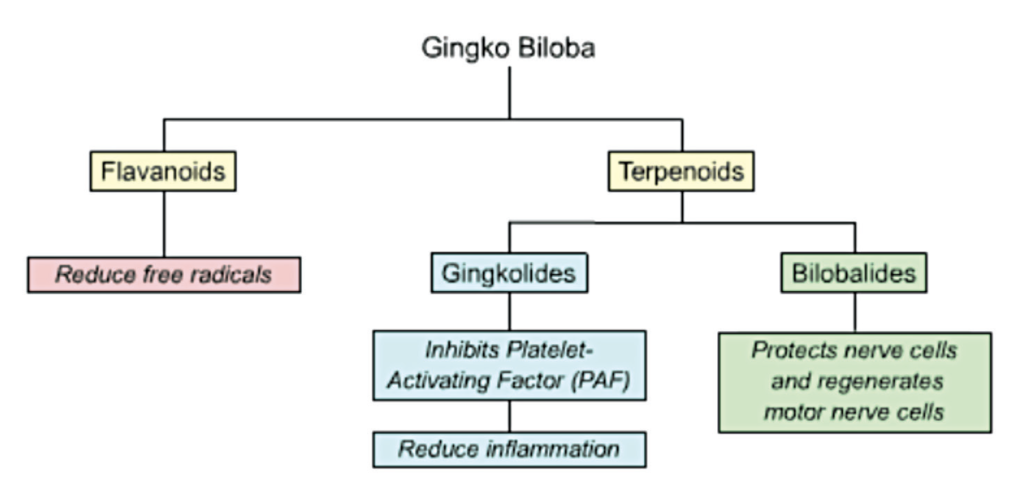
Proponents of complementary medicine have made claims that ginkgo may be effective for a wide variety of conditions due to these antioxidant, anti-inflammatory and neuroprotective effects.6 These effects may mean that supplementation has broad applications across a range of health conditions, such as arthritis, inflammatory bowel disease, cancer, heart disease and stroke, among others. Animal studies and research show that ginkgo extract can reduce markers of inflammation in both human and animal cells in a variety of disease states.7,8,9 Ginkgo may also be beneficial in Raynaud’s disease, cardiovascular disease, certain neurological states, and for eye health.
RAYNAUD’S AND CARDIOVASCULAR DISEASE
Ginkgo’s apparent ability to increase blood flow may be the reason that benefits have been observed with respect to Raynaud’s and heart disease. People with heart disease who supplemented with ginkgo showed an immediate increase in blood flow to multiple parts of the body: This was attributed to a 12 per cent increase in levels of circulating nitric oxide, which dilates blood vessels.10 In a study that compared blood flow in healthy older adults treated with either GBE (with similar constituents to EGb 761) or saline, the treatment group showed an improvement in both coronary artery blood flow and brachial artery blood flow (using brachial artery diameter as a measurement).11 The authors of this study suggest that this effect is due to the improvement of endothelial function through ginkgo’s antioxidant effects.
In thermal imaging studies performed on ginkgo biloba, Pharma Nord examined the blood flow through the hands of a person before and after taking ginkgo.12 Hands were submerged in cold water for two minutes (7°) and photographed afterwards (Figures 2 and 3). After 10 minutes, the hands were photographed again. Thermal imaging shows an improvement in skin temperature recovery with use of ginkgo supplementation.
DEMENTIA AND COGNITIVE DECLINE
Ginkgo has been reported to have nootropic (cognitive-enhancing) properties and has been used widely in the past to reduce or even prevent the cognitive decline associated with ageing and in those suffering from dementia or Alzheimer’s disease. It is currently in the WHO’s Anatomical Therapeutic Chemical Classification listing as an anti-dementia drug.13 There is research evidence supporting this, with one study reporting that EGb 761 was clinically effective in treating Alzheimer’s dementia.14 In a review of 21 studies, it was shown that when used in conjunction with conventional medicine, ginkgo extract may potentially increase the functional capabilities of those with mild Alzheimer’s disease.15
Another placebo-controlled, double-blind, randomised trial published in JAMA similarly concluded EGb 761 was safe to use and possibly stabilised and improved cognitive and social function in dementia patients for between six and 12 months.16 Overall, however, research is inconsistent, with some studies failing to replicate these results.12 Authors of one meta-analysis suggest that one contributing factor to negative results may be sub-threshold dosing (ie, 120mg daily) but there is insufficient detail in the data available to determine if this is the case.
It is possible that the reasons for mixed results from research studies investigating the cognitive enhancement of some mental functions by ginkgo is that: 1) Improvements can be clearly shown in cognitively impaired patients, but less so in healthy volunteers; and 2) some studies only require participants to take ginkgo for a short time (<6 weeks), which is not sufficient treatment time to have any statistically significant effect.13 Although no definitive conclusion can be made regarding the positive effects of ginkgo on the progression of Alzheimer’s disease, it may help in some cases. This is likely due to the improvement of multiple mechanisms, including increasing blood circulation to the brain, and protection of the brain from neuronal damage largely through reducing oxidative stress and damage due to inflammation.
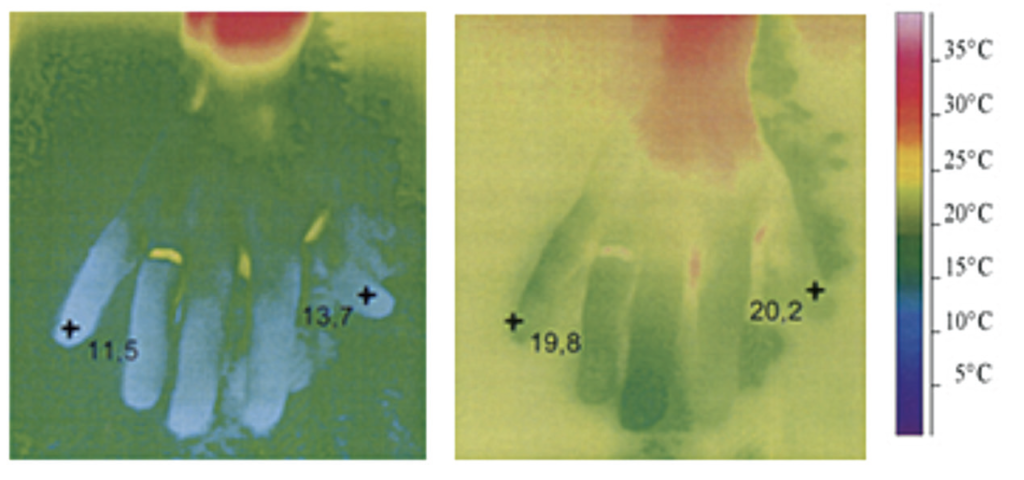
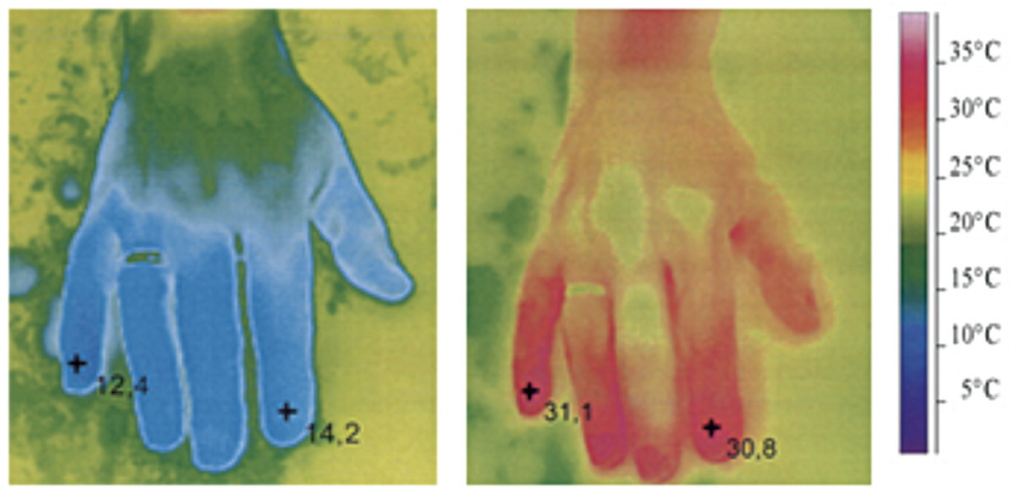
Speed up your blood flow
Ginkgo biloba is a traditional herbal medicinal product used to alleviate the symptoms of poor blood flow in conditions such as cold hands and feet. To get the desired effects, it is essential that you choose a product with a documented content of active compounds.
Your bloodstream carries oxygen and nutrients to every single part of your body – from head to toe – to ensure that all your body functions work properly. However, the flow of blood through the smallest capillaries can decrease for various reasons, and that may cause problems like cold fingers and toes.
Warm hands and feet again
A thermo-graphic camera can be used to test ginkgo biloba’s ability to improve circulation in the hands. When the test subject takes ginkgo biloba, their hands become significantly warmer in the minutes right after they have been cooled down in very cold water.
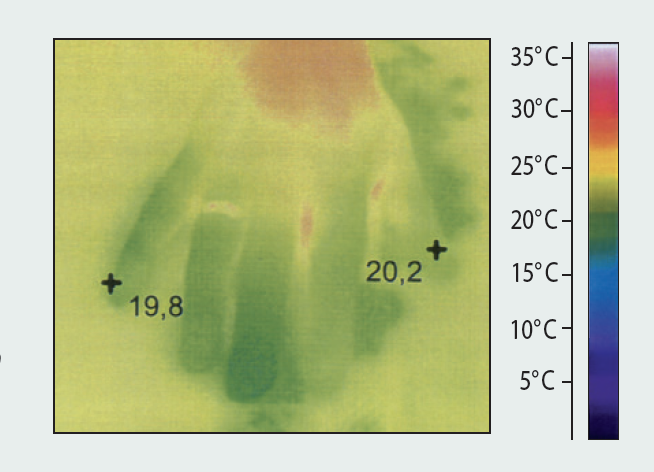
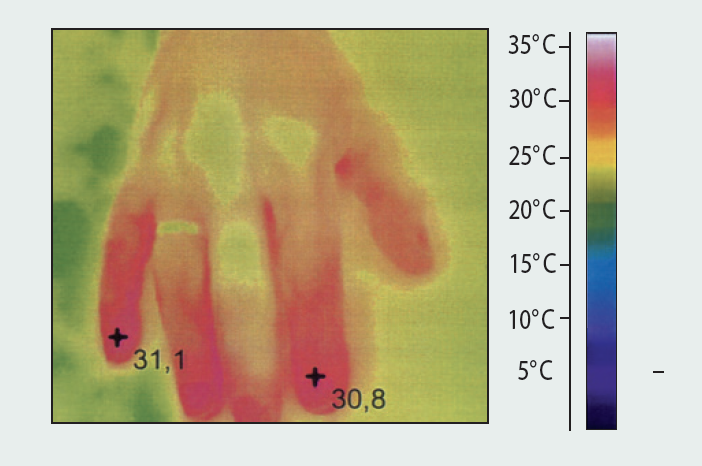
Cold hands and feet?
This problem may be a result of having poor blood circulation, and the solution could be tablets with ginkgo biloba.
Every inch of the body depends on a well-functioning blood supply that delivers oxy-gen and nutrients to the cells. As we hu-mans age, our blood circulation becomes less efficient, leading to problems like cold hands and feet.
Supports your blood circulation
It stands to reason that ginkgo biloba is so popular among older people. The active compounds in the extract dilate your blood vessels, helping your blood to flow more easily through them.
What is ginkgo biloba?
Ginkgo biloba is a plant extract made from the leaves of ginkgo biloba, an ancient tem-ple tree that is also known as maidenhair tree. The extract contains a variety of bio-logically active compounds. Two specific compounds – ginkgoflavone glycosides and terpene lactones – are particularly well-documented and have been shown to support good blood circulation and good cognitive function. Today, thanks to scientific research that has delved into 0322 the underlying mechanisms of these ac-tive ingredients, it is possible to manufac-ture high-quality extracts that deliver the exact same amount of active compound with each tablet. Ginkgo-Biloba Pharma Nord represents this new generation of pharmaceutical-standard ginkgo biloba products that have become increasingly popular, namely among the elderly.
Ginkgo-Biloba Pharma Nord has a high content of active compounds: The high content of active compounds makes it possible to obtain the desired effect with 1 tablet twice a day.
Traditional herbal medicinal product used to alleviate the symptoms of poor blood flow in conditions such as cold hands and feet, exclusively based upon long-standing use. Always read the leaflet.
ANXIETY AND MENTAL WELLBEING
Multiple sources indicate a positive effect of ginkgo on brain function. This includes the potential enhancement of mental performance, including memory, focus and attention span, and mental wellbeing.17,18 In one study, EGb 761 appeared to positively impact the general mental health, as well as quality of life, of patients between the ages of 50 and 65 years of age after a treatment period of four weeks. Self-judged mood improved as early as after two weeks of treatment. However, a larger review of 10 studies did not support any measurable improvements.12
Despite the antidepressant and anxiolytic drugs available, more effective and faster-acting treatments with fewer side-effects are still desirable. There is evidence that EGb 761 has antidepressant properties, and anxiolytic and anti-stress effects. Many animal studies support positive effects of EGb 761 on stress, depression and anxiety, however, there are few studies in which the effect in humans has been specifically studied. In one of these RCTs, patients with anxiety disorders were given EGb 761, as well as placebo, for four weeks. Total anxiety scores (as measured by the Hamilton rating scale for anxiety) decreased in both the high-dose (480mg daily) and low-dose (240mg daily) groups, with a significantly greater reduction in anxiety parameters in both treatment groups than with placebo. This study also shows that there is a dose-dependent anxiolytic effect of EGb 761.19
EYE HEALTH
There is little research that has investigated how ginkgo relates to vision and eye health so far. However, emerging results are promising. Increased ocular pressure is a main factor contributing to the pathophysiology of glaucoma. Vascular dysfunction, mitochondrial dysfunction and oxidative stress may also contribute as mechanisms of glaucomatous damage.
Although there are few published studies on GBE and ocular blood flow (OBF), the published data support GBE’s effect on improving OBF. While supplementation with ginkgo led to increased OBF in patients with glaucoma, studies that identified this did not look at additional clinical glaucoma outcomes, such as visual field performance. Due to this, we cannot conclude that the improved blood flow translated to better vision, although this may be the case.3 One small study did observe improvements in the vision of people with glaucoma who took 120mg a day of ginkgo over a period of eight weeks.
Some studies have also suggested that ginkgo may help people with macular degeneration to keep their sight for longer. Another review evaluated the impact of ginkgo supplementation on the progression of age-related macular degeneration. Some participants did report an improvement in vision, but this was not statistically significant for the whole population studied.20 This positive effect is thought to be related to several mechanisms: Increased blood flow to the eye, platelet activating factor antagonism, and prevention of membrane damage caused by free radicals.
POTENTIAL INTERACTIONS AND CONTRAINDICATIONS
There is the potential for interaction between ginkgo and prescription medications, including anticoagulants, anticonvulsants, antidepressants (particularly SSRIs, MAOIs, trazodone), anti-inflammatory agents, anaesthetics, anti-hypertensives, blood sugar-lowering drugs, cyclosporin, and thiazide diuretics.21,22
As with all herbal supplements, caution should be exercised if advising use in any vulnerable patient population that may be susceptible to interactions and adverse effects. One systematic review2 looking at drug interactions with ginkgo did not identify any clinically relevant interaction as long as the maximum daily recommended dose of 240 mg/day was not exceeded. However, if products of unreliable quality are used, ie, using different extraction techniques leading to a product of ambiguous strength and purity, this increases the potential for drug interactions.
Most studies reporting side-effects have been case reports of patients with comorbid conditions taking other medications. Several case studies report bleeding abnormalities that are potentially attributable to ginkgo, possibly due to components that have PAF receptor antagonist properties.23
Ginkgo is not suitable for use in people with allergies to plants that contain alkylphenols, pregnant or breastfeeding women, or those with scheduled surgery, dental work or medical procedures. There are also potential interactions between ginkgo and other herbal products, including, ie, capsicum, clove, garlic, ginger, horse chestnut, and ginseng.
POSSIBLE ADVERSE EFFECTS
In general, GBE is well tolerated, with a low side-effect profile.3 According to a meta-analysis24 evaluating studies done in populations with dementia, the adverse effects of EGb 761 and study withdrawals due to these were not significantly different to placebo. However, RCTs may not identify rare events and medication interactions, and other ginkgo extracts and products may be associated with different side-effects. During intake of EGb 761, the most commonly reported ADRs are nausea, headache (0.9%), gastrointestinal disturbances (2.6%), sleep disturbances/ dizziness (0.4%), and skin reactions (0.3%), as well as reports of bleeding.19
Anyone taking a herbal supplement should stop using and seek medical help if any unexpected side-effects occur, such as being easily bruised, unusual bleeding, a seizure, a weak pulse, shallow breathing, or any allergic reaction (ie, hives, difficulty breathing, swelling of the face, lips, tongue or throat).
SUMMARY
The research on ginkgo biloba shows evidence to support its antioxidant activity, anti-inflammatory benefits, and its ability to improve circulation. These effects make it a potentially useful supplement across a broad range of health conditions, including in suitable patient populations with heart disease, Raynaud’s disease, and those seeking to improve eye health and cognitive function.
References
1. Sati P, Dhyani P, Bhatt ID, & Pandey A (2019). Ginkgo biloba flavonoid glycosides in antimicrobial perspective with reference to extraction method. Journal of Traditional and Complementary Medicine, 9(1), 15-23.
2. Unger M (2013). Pharmacokinetic drug interactions involving Ginkgo biloba. Drug Metabolism Reviews, 45(3), 353-385.
3. Kang JM, & Lin S (2018). Ginkgo biloba and its potential role in glaucoma. Current Opinion in Ophthalmology, 29(2), 116-120.
4. Liou S (2010). Ginkgo Biloba — HOPES Huntington’s Disease Information. Available https://hopes.stanford. edu/ginkgo-biloba/#:~:text=The%20 other%20major%20components%20 of%20ginkgo%20extract%20 are,are%20closely%20related%20in%20 structure%20to%20the%20ginkgolides.
5. Villines Z (2017). How do free radicals affect the body? Available https://www. medicalnewstoday.com/articles/318652.
6. Bridi R, Crossetti FP, Steffen VM, & Henriques AT (2001). The antioxidant activity of standardised extract of ginkgo biloba (EGb 761) in rats. Phytotherapy Research, 15(5), 449-451.
7. Zuo W, Yan F, Zhang B, Li J, & Mei D (2017). Advances in the studies of Ginkgo biloba leaves extract on ageing-related diseases. Ageing and Disease, 8(6), 812.
8. Kotakadi VS, Jin Y, Hofseth AB, Ying L, Cui X, Volate S, … & Hofseth LJ (2008). Ginkgo biloba extract EGb 761 has anti-inflammatory properties and ameliorates colitis in mice by driving effector T cell apoptosis. Carcinogenesis, 29(9), 1799-1806.
9. Chen YJ, Tsai KS, Chiu CY, Yang TH, Lin TH, Fu WM, … & Liu SH (2013). EGb761 inhibits inflammatory responses in human chondrocytes and shows chondroprotection in osteoarthritic rat knee. Journal of Orthopaedic Research, 31(7), 1032-1038.
10. Wu YZ, Li SQ, Zu XG, Du J, & Wang FF (2008). Ginkgo biloba extract improves coronary artery circulation in patients with coronary artery disease: contribution of plasma nitric oxide and endothelin-1. Phytotherapy Research: An International Journal Devoted to Pharmacological and Toxicological Evaluation of Natural Product Derivatives, 22(6), 734-739.
11. Wu Y, Li S, Cui W, Zu X, Du J, & Wang F (2008). Ginkgo biloba extract improves coronary blood flow in healthy elderly adults: Role of endothelium-dependent vasodilation. Phytomedicine, 15(3), 164-169.
12. Pharma Nord (nd). Ginkgo-Biloba Pharma Nord. Available https://www. pharmanord.ie/products/ginkgo-biloba.
13. Laws KR, Sweetnam H, & Kondel TK (2012). Is Ginkgo biloba a cognitive enhancer in healthy individuals? A meta-analysis. Human Psychopharmacology: Clinical and Experimental, 27(6), 527-533.
14. Kanowski S, Herrmann WM, Stephan K, Wierich W, & Hörr R (1996). Proof of efficacy of the ginkgo biloba special extract EGb 761 in outpatients suffering from mild to moderate primary degenerative dementia of the Alzheimer type or multi-infarct dementia. Pharmacopsychiatry, 29(2), 47–56. https://doi.org/10.1055/s-2007-979544.
15. Yang G, Wang Y, Sun J, Zhang K, & Liu J (2016). Ginkgo Biloba for Mild Cognitive Impairment and Alzheimer’s Disease: A Systematic Review and Meta- Analysis of Randomised Controlled Trials. Current Topics in Medicinal Chemistry, 16(5), 520–528. https://doi.org /10.2174/1568026615666150813143520.
16. Le Bars PL, Katz MM, Berman N, Itil TM, Freedman AM, & Schatzberg AF (1997). A placebo-controlled, double-blind, randomised trial of an extract of Ginkgo biloba for dementia. North American EGb Study Group. JAMA, 278(16), 1327–1332. https://doi. org/10.1001/jama.278.16.1327.
17. Mix JA, & Crews WD, Jr (2002). A double-blind, placebo-controlled, randomised trial of Ginkgo biloba extract EGb 761 in a sample of cognitively intact older adults: Neuropsychological findings. Human Psychopharmacology, 17(6), 267–277. https://doi.org/10.1002/hup.412.
18. Cieza A, Maier P, & Pöppel E (2003). Effects of Ginkgo biloba on mental functioning in healthy volunteers. Archives of Medical Research, 34(5), 373–381. https://doi.org/10.1016/j. arcmed.2003.05.001.
19. Woelk H, Arnoldt KH, Kieser M, & Hoerr R (2007). Ginkgo biloba special extract EGb 761 in generalised anxiety disorder and adjustment disorder with anxious mood: A randomised, double-blind, placebo-controlled trial. Journal of Psychiatric Research, 41(6), 472–480. https://doi.org/10.1016/j. jpsychires.2006.05.004.
20. Evans JR (2013). Ginkgo biloba extract for age-related macular degeneration. The Cochrane Database of Systematic Reviews, 2013(1), CD001775. https://doi.org/10.1002/14651858. CD001775.pub2.
21. Posadzki P, Watson L, & Ernst E (2013). Herb–drug interactions: An overview of systematic reviews. British Journal of Clinical Pharmacology, 75(3), 603-618.
22. St Luke’s Hospital (2010). Complementary and Alternative Medicine. Possible Interactions with: Ginkgo Biloba. Available https:// www.stlukes-stl.com/health-content/ medicine/33/000902.htm.
23. Diamond BJ, & Bailey MR (2013). Ginkgo biloba: Indications, mechanisms, and safety. The Psychiatric Clinics of North America, 36(1), 73–83. https://doi. org/10.1016/j.psc.2012.12.006.
24. Weinmann S, Roll S, Schwarzbach C et al. Effects of Ginkgo biloba in dementia: Systematic review and meta-analysis. BMC Geriatr 10, 14 (2010). https://doi. org/10.1186/1471-2318-10-14.
